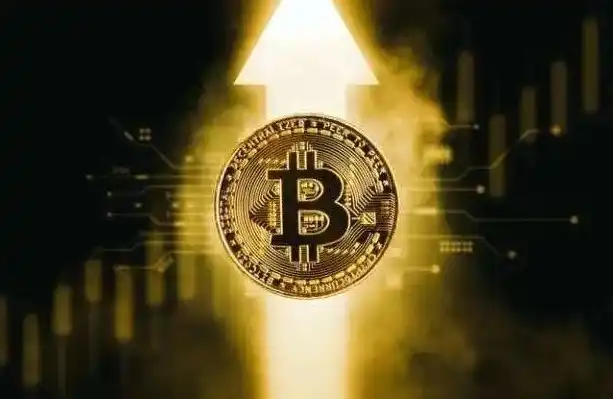Regulatory Relaxation Abounds, Is the Crypto Spring Coming to the US Market?
Recently, the United States has been sending positive signals regarding regulatory support for the crypto industry: In the early hours of February 26, the U.S. Securities and Exchange Commission (SEC) announced the conclusion of a three-year investigation into Uniswap Labs, with no enforcement action taken; Market-making giants Wintermute and Citadel Securities have begun to enter the U.S. market; Tornado Cash founder Alexey Pertsev was granted temporary release by a Dutch court... The new government has been continuously revisiting and overturning the previous strict accusations against the crypto industry, welcoming new blood, which has sparked discussions on whether the crypto regulatory framework is shifting towards a more relaxed approach. How to regulate to better fit decentralized institutions has always been an unresolved issue in financial regulation, leading to many long-standing controversial lawsuits.
Uniswap: SEC Concludes Three-Year Investigation
As early as 2021, the SEC began investigating Uniswap Labs, questioning whether it operated as an unregistered securities exchange and whether its UNI token constituted an illegal securities issuance. On April 11, 2024, the SEC issued a warning to Uniswap Labs, which was sent in the form of a Wells Notice, planning to take enforcement action against the company. On May 22, Uniswap Labs responded for the first time to the notice received from the SEC in April, stating that the Uniswap Protocol is a secure, low-cost, and transparent infrastructure, that the protocol does not meet the definition of an exchange, and that the UNI token does not meet the standard of an "investment contract." Uniswap Labs argued that the SEC should embrace open-source technology that improves outdated business and financial systems rather than attempt to eliminate it through litigation. On July 10, Uniswap Labs' Chief Legal Officer Katherine Minarik posted on social media, urging the SEC to not proceed with its proposed rulemaking process, which, inappropriately expanded the definition of a "trading platform" to include DeFi and more.
Key points of Uniswap Labs' defense include:
The Uniswap Protocol, website, and wallets do not meet the legal definition of a securities exchange or broker-dealer;
The UNI token is held by over 300,000 holders, its value is not dependent on Uniswap Labs' efforts, similar to Bitcoin and Ethereum, is decentralized, and should not be considered a security.

Image Source: Uniswap Blog
On February 26, 2025, the SEC, which had previously accused Uniswap Labs of operating an unregistered securities exchange, broker-dealer, or clearing agency, and potentially issuing unregistered securities, finally concluded its investigation and dropped all charges. Uniswap founder Hayden Adams stated that the SEC's enforcement had no clear legal basis. As a form of selective enforcement strategy, the SEC attempted to forcibly fit DeFi into an unsuitable regulatory framework while refusing to provide clear rules or compliance pathways. The investigation lasted over three years, wasting a significant amount of time and millions of dollars. The UNI token also experienced a short-term price surge of nearly 10%, demonstrating a strong market reaction.

This episode has finally come to a close, with Uniswap Labs calling it a "major victory for DeFi" and emphasizing: "This once again proves the fact that we have always believed in—our technology stands on the right side of the law, and our work is on the right side of history."
Uniswap's victory is not only a victory for decentralization but also a reminder that relevant authorities should establish appropriate regulatory policies. DeFi provides alternative traditional financial services through blockchain smart contracts, such as lending, trading, and asset management, aiming to eliminate the influence of centralized institutions on the market. However, its decentralized nature complicates regulation. The existing legal framework primarily targets centralized financial institutions, and regulators lack understanding and experience in regulating decentralized platforms. While the SEC and other regulatory bodies are attempting to apply Anti-Money Laundering (AML) and Know Your Customer (KYC) regulations to DeFi, enforcement poses significant challenges.
Former SEC Chair Gary Gensler has referred to DeFi as the "Wild West" and has emphasized the need for stricter regulation. The Uniswap case illustrates that the existing securities laws may not fully apply to decentralized platforms, indicating that future congressional legislation may be necessary to establish a dedicated DeFi regulatory framework.
Tornado Cash Case Sees a Turning Point
Another typical case that was once heavily sanctioned by US regulatory agencies but eventually achieved victory after a long legal battle is Tornado Cash.
Tornado Cash is an Ethereum privacy protocol that can obfuscate transaction sources, destinations, and counterparties, aiming to indiscriminately facilitate anonymous transactions without attempting to trace their origin. Its original design intent was to protect user privacy but also drew regulatory attention due to its abuse for money laundering.
In August 2022, the U.S. Department of the Treasury's Office of Foreign Assets Control (OFAC) sanctioned Tornado Cash. The Treasury Department stated in its announcement that since its creation in 2019, Tornado Cash had been used to launder over $7 billion in virtual currency, including $455 million stolen by the North Korean government-backed hacker group Lazarus Group. Additionally, Tornado Cash was used to mix over $96 million in illicit funds from the June 24, 2022, Harmony Bridge hack and at least $7.8 million from the August 2, 2022, Nomad hack.

Image Source: US Treasury Website
The Treasury Department's sanctions primarily include banning access, prohibiting businesses and individuals from interacting with Tornado Cash, preventing U.S. institutions or platforms from engaging in financial transactions with it, and freezing all assets Tornado Cash holds or controls within the United States.
Furthermore, in May 2024, a Dutch court found Tornado Cash founder Alexey Pertsev guilty of aiding money laundering of $22 billion in cryptocurrency and sentenced him to 64 months in prison. The prosecution accused him of failing to prevent hacker groups (such as the North Korean Lazarus Group) from using the protocol for money laundering, despite the defense emphasizing the protocol's "decentralization" and "uncontrollability." However, the court held the developer accountable for the misuse.
The Tornado Cash incident signifies an escalation in the battle between "crypto protocols" and "regulation." The sanctions on Tornado Cash represent a direct regulatory attack on the protocol. The Treasury Department believes that creating a privacy protocol that criminals can use constitutes criminal behavior, disregarding the protocol's inherent "decentralization" and "uncontrollability."

Image Source: CoinDesk, showing a protest in support of protecting crypto tech and privacy
A shift occurred at the end of 2024. On November 28, 2024, the court ruled that the Tornado Cash case's immutable smart contract does not constitute property and cannot be sanctioned under current law, making the Treasury Department's previous sanctions on Tornado Cash illegal. As stated in a report to investors by 10X Research, "While this ruling does not endorse money laundering, it sets a precedent allowing programmers to develop and release smart contract protocols without fear of sanctions even without charging fees." Balaji Srinivasan, former CTO of Coinbase and a prominent crypto entrepreneur, tweeted, "Privacy won. Smart contracts won. Tornado Cash won. OFAC lost." The Tornado Cash protocol's token, TORN, also experienced a rapid price surge after the ruling, rising from a low of $3.7 to a high of $43 within an hour.
In January 2025, a Texas court once again supported the lifting of sanctions, stating that the U.S. Treasury Department's approval of engaging with Tornado Cash exceeded its authority, further confirming the invalidity of the sanctions.
Shedding the "illegal" shackles, more than two months later, Alexey Pertsev also stated in a post that a Dutch court had agreed to suspend his pre-trial detention under electronic monitoring conditions, and he would be temporarily released on February 7 at 10 a.m. Pertsev stated that this would give him the opportunity to continue his appeal, fight for justice, and thanked all supporters for their help.
Related Reading: "Landmark Ruling: Sanctions on Tornado Cash Ruled Illegal, TORN Surges Over 10x Before Falling Back"
Long-standing Market Maker Joins U.S. Market
At the Consensus Hong Kong 2025 conference a week ago, Wintermute CEO Evgeny Gaevoy, in an interview with Bloomberg, stated that the company's business expansion plans have changed. While the focus was previously on the Asian market, the company is now shifting its focus to the U.S. and hopes that the U.S. will enact favorable cryptocurrency regulatory policies.
On February 25, according to Bloomberg, Citadel Securities, a traditional financial industry giant with a market value of $650 billion, plans to enter the cryptocurrency market-making field, marking a significant shift from its previously cautious stance on the cryptocurrency sector. The company has already planned to join the market-making list of several exchanges, including Coinbase Global, Binance, and Crypto.com, and may initially establish a market-making team outside the U.S.
The entry of Citadel Securities and Wintermute, one a traditional financial industry veteran market maker and the other a cryptocurrency market-making giant with long-standing experience, undoubtedly will directly increase liquidity in the U.S. crypto market. Particularly with the entry of the traditional financial giant Citadel, it will directly propel the crypto market from its "wild growth" phase towards maturity, promoting comprehensive improvements in market liquidity, trading efficiency, and regulatory compliance. This also indicates that as U.S. regulatory standards evolve, institutional confidence in the crypto industry continues to grow, and the U.S. crypto market may be entering a new growth phase.
Related Reading: "Regulations Continue to Loosen, Are U.S. Crypto Market Makers Coming Back?"
As Hayden Adams mentioned in a post today, "I'm pleased to see the new SEC leadership take a more constructive approach and look forward to collaborating with Congress and regulatory agencies to develop rules that truly work for DeFi — encouraging innovation, enhancing transparency and financial market access, allowing this technology to thrive in the U.S. rather than being forced overseas." With the continued release of positive regulatory signals, the best era of DeFi may be on the horizon, and the U.S. could be on the cusp of a crypto spring in full bloom.
Welcome to join the official BlockBeats community:
Telegram Subscription Group: https://t.me/theblockbeats
Telegram Discussion Group: https://t.me/BlockBeats_App
Official Twitter Account: https://twitter.com/BlockBeatsAsia
 Forum
Forum OPRR
OPRR Finance
Finance
 Specials
Specials
 On-chain Eco
On-chain Eco
 Entry
Entry
 Podcasts
Podcasts
 Data
Data


 Summarized by AI
Summarized by AI







